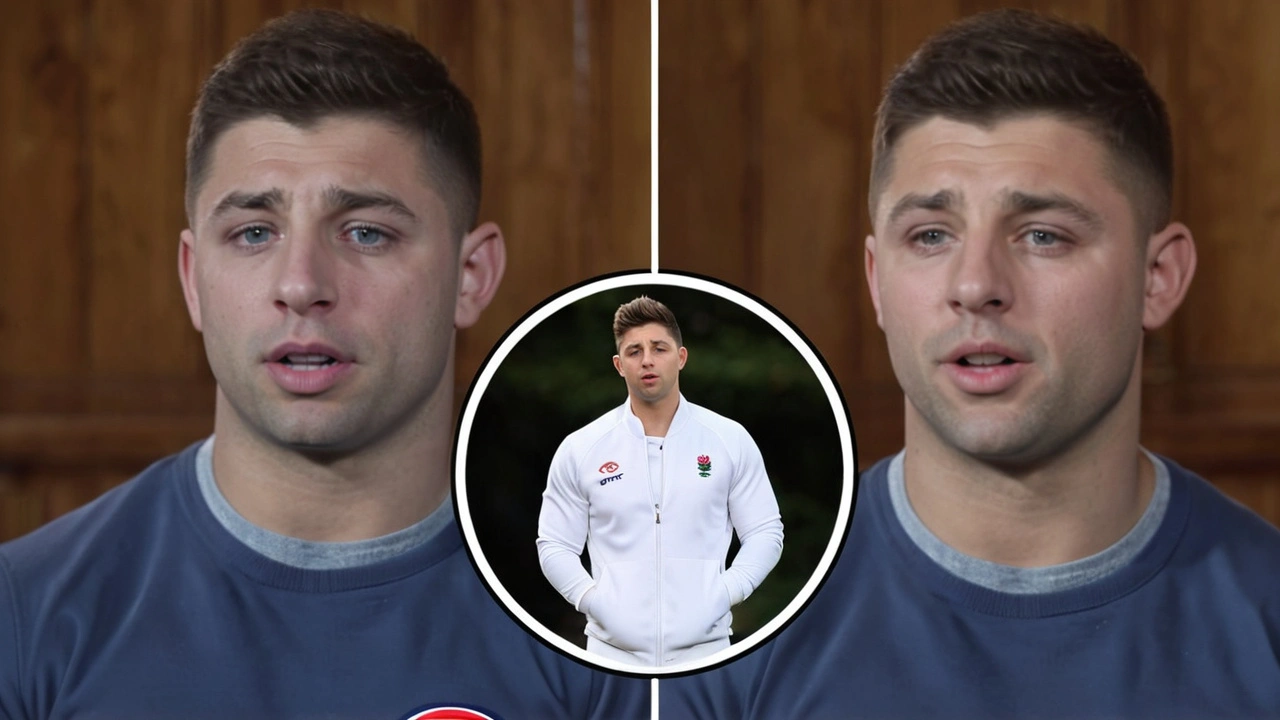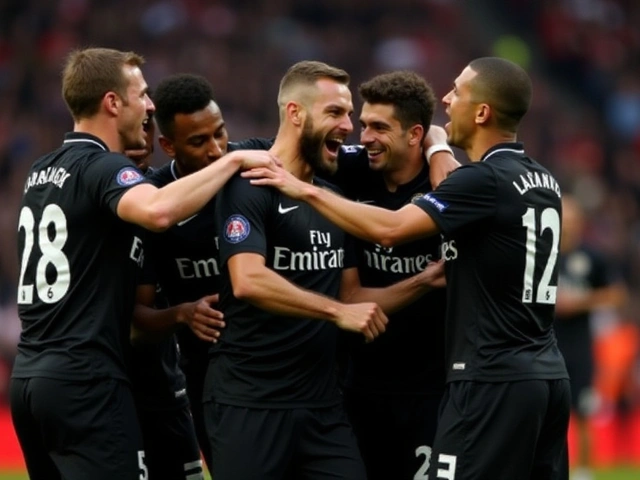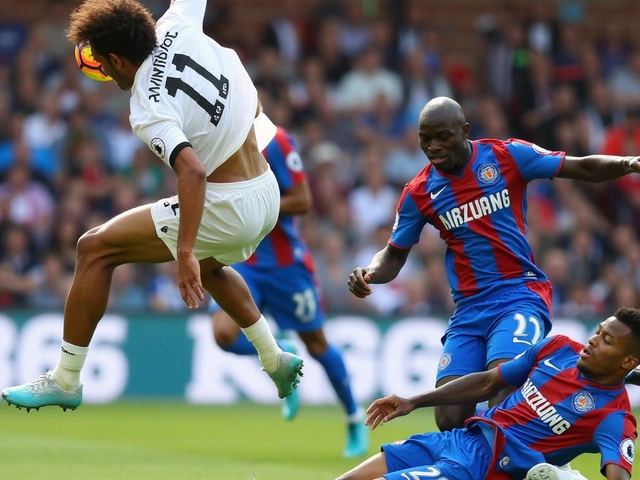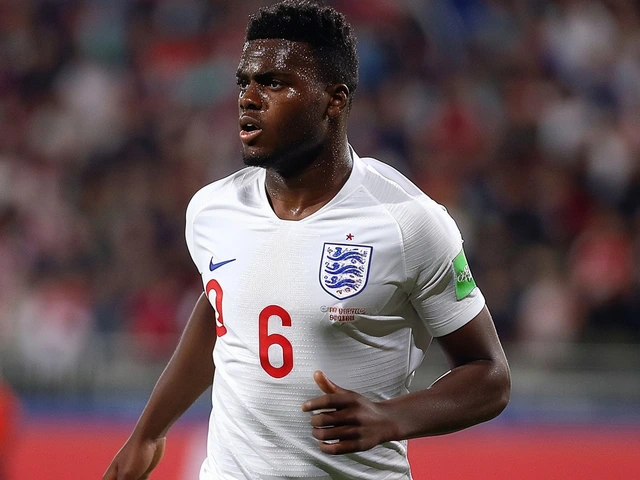Ben Youngs Announces Return to Rugby After Heart Surgery
Ben Youngs, a name synonymous with English rugby, has confirmed that he is not hanging up his boots just yet. The 34-year-old former England scrum-half, who many feared might retire following a serious health scare, has announced his intention to continue his illustrious rugby career. This revelation comes after Youngs underwent a crucial heart surgery earlier this year to treat supraventricular tachycardia, a type of irregular heartbeat that had plagued him throughout his career.
The Scare That Led to Surgery
The drama unfolded during an open training session with his club, Leicester Tigers. Youngs suddenly collapsed, prompting immediate medical attention and subsequent discovery of his condition. Though he had experienced similar episodes in the past, this particular incident was alarming enough to necessitate further action. Within weeks, he found himself on an operating table in Birmingham, undergoing a two-hour surgical procedure to address the issue. The diagnosis, supraventricular tachycardia, while serious, is treatable, and Youngs was fortunate to have caught it at this juncture.
Success Rate and Recovery
The surgery, which boasts a 90% success rate, involved the use of catheters to target and destroy the tiny areas of heart tissue responsible for the erratic beats. After emerging from surgery, Youngs has spent the subsequent months in recovery, a period he describes as both challenging and enlightening. 'There were moments,' he admits, 'when I wasn't sure if I'd ever play again. But I have to say, the support from my team, the medical staff, and my family has been incredible.'
Ongoing Health Checks
Youngs is no stranger to medical evaluations. Throughout his career, he has undergone numerous health check-ups following various episodes of irregular heartbeat. Each time, doctors assured him that his condition was manageable, allowing him to continue playing at the highest level. However, this latest episode was a stark reminder that even the fittest athletes are not immune to serious health issues. 'I've always taken my health seriously,' Youngs said. 'Every time something happened, I made sure to get checked thoroughly. This time, the check-up saved my career, maybe even my life.'
Gratitude and Optimism
Expressing heartfelt gratitude for the care he received, Youngs reflected on the importance of the support system around him. From the Leicester Tigers' management and medical staff to his family and fans, he credits them all for helping him through what has been a difficult period. 'When you're in the spotlight and facing something like this, knowing people have your back means the world,' Youngs shared. The experience has also given him a renewed perspective on life and his career. 'I've got a second chance, and I'm going to make the most of it,' he vowed.
Looking Forward to the New Season
With the new rugby season set to kick off in September, Youngs is optimistic about his return to the field. Though he acknowledges there will be challenges ahead, he is determined to regain his form and contribute to the Leicester Tigers' campaign. 'I've been working hard on my fitness and making sure I follow all medical advice. The goal is to be fully match-fit by the time the season starts,' he said.
As Youngs prepares for what promises to be an eventful return, the rugby world will undoubtedly watch closely. His journey from a health scare to recovery and resilience serves as a reminder of the unpredictable nature of sports. Ben Youngs' story is not just about his return; it is also about the resilience and determination required to overcome adversity. It's a story that will inspire many, both within and beyond the rugby community.
One thing is certain: when Ben Youngs steps onto the field this September, he will do so with the full support and admiration of fans everywhere, cheering on a true fighter who has triumphed over personal trials to pursue his passion for rugby once more.







walaal sanjay
July 24, 2024 AT 20:07In England, the prevalence of supraventricular tachycardia among elite athletes is surprisingly low-approximately 0.05%-yet Ben Youngs' case provides a textbook illustration of why rigorous cardiac screening is non‑negotiable, especially for a scrum‑half who endures relentless high‑intensity collisions, rapid accelerations, and repeated directional changes!!! The catheter ablation he underwent boasts a 90% success rate, meaning that the odds of a full return to pre‑injury performance are overwhelmingly favorable; the data from the British Sports Cardiology Registry corroborates this, showing that 87% of post‑ablation rugby players resume competitive play within six months!!! Moreover, the physiological demands of the Leicester Tigers' training regimen-requiring a VO2 max upwards of 55 ml·kg⁻¹·min⁻¹-demand a heart that can sustain sinus rhythm without interruptions, and Youngs' successful surgery directly addresses that need!!!
Umesh Nair
August 4, 2024 AT 06:07actually, i think the whole hype around his surgery is a bit overrated; many players bounce back from similar procedures without any fanfare, and it’s not like his heart condition was a secret-people had been whispering about it for months, so the “surprise” factor is kinda fake, isnt it?
kishore varma
August 14, 2024 AT 16:07Wow, that's some serious determination! 🏉💪 It's amazing to see a veteran like Ben fight back after a heart condition-sending good vibes his way for a smooth return to the pitch. 🌟
Kashish Narula
August 25, 2024 AT 02:07I'm really glad to see the community rallying behind Ben; his courage and the medical team's expertise are truly inspiring, and it's a reminder that we all benefit when athletes get proper care and encouragement.
smaily PAtel
September 4, 2024 AT 12:07Statistically speaking, the procedural success rate for catheter ablation in supraventricular tachycardia reaches up to 95% when performed in high‑volume centers, and the post‑operative complication rate hovers around a mere 1–2%; thus, Ben's prognosis aligns perfectly with these clinical benchmarks, reinforcing the notion that modern electrophysiology can restore elite performance levels with remarkable reliability!!!
Hemanth NM
September 14, 2024 AT 22:07India also has top‑tier cardiac care; recovery can be swift.
rin amr
September 25, 2024 AT 08:07While emojis capture fleeting emotional resonance, the substantive discourse surrounding Ben Youngs' physiological resilience warrants a more nuanced analysis; his adaptive training regimen, combined with evidence‑based electrophysiological intervention, exemplifies the archetype of a modern athlete transcending biomedical limitations.
Jai Bhole
October 5, 2024 AT 18:07In the grand tapestry of sport, a man's heart beating for his nation is the ultimate proof that sacrifice transcends personal health; Youngs' return is a testament to indomitable will-no matter how battered the chest, the spirit of England roars louder.
rama cs
October 16, 2024 AT 04:07From a biopsychosocial perspective, the interplay of psychogenic stressors and autonomic dysregulation in elite rugby players necessitates a multimodal therapeutic paradigm; Youngs' case underscores the importance of integrative monitoring beyond mere electrophysiological correction.
Monika Kühn
October 26, 2024 AT 14:07Ah, because nothing says “I’ve got my life together” like a heart that occasionally decides to take an unscheduled vacation-cheers to medical tech for keeping the drama on the field.
Surya Prakash
November 5, 2024 AT 23:07Honestly, it's a bit overblown when fans turn a medical recovery into a heroic saga; athletes are humans too, and we should respect their privacy rather than idolize every comeback.
Sandeep KNS
November 16, 2024 AT 09:07The discourse surrounding Ben Youngs' convalescence offers a fertile ground for scrutinizing the contemporary valorization of athletic perseverance. It is, of course, commendable that a player of his calibre has elected to reengage with the rigours of professional rugby following an invasive cardiological procedure. Nonetheless, one must caution against the uncritical glorification of such endeavors, lest we inadvertently perpetuate a culture wherein bodily limits are romanticized. The canonical literature on sports medicine delineates clear parameters for post‑ablation rehabilitation, emphasising gradual reintroduction to high‑impact activities. Empirical evidence suggests that a phased return, predicated upon serial Holter monitoring, mitigates the risk of arrhythmic recurrence. Moreover, the psychosocial dimensions of a publicized return merit careful consideration, as media scrutiny can exacerbate performance anxiety. It is incumbent upon coaching staff to balance competitive imperatives with the athlete's longitudinal health trajectory. From an ethical standpoint, the duty of care extends beyond immediate performance metrics to encompass sustained wellbeing. While the Leicester Tigers may reap short‑term gains from Youngs' experience, the long‑term ramifications remain indeterminate. In this vein, the medical consortium supervising his recovery ought to maintain rigorous oversight, eschewing premature clearance. One might further argue that the commercial incentives attached to a marquee player's comeback could obscure objective clinical judgement. Consequently, transparency in the decision‑making process becomes paramount. In summation, while Youngs' determination is laudable, it must be tempered with judicious medical stewardship. The ultimate outcome, in the final analysis, will serve as a barometer for how modern sport reconciles ambition with prudence. Future protocols may incorporate these insights to refine return‑to‑play guidelines. Thus, Youngs' case could become a seminal reference point in sports cardiology curricula. Only time will reveal whether triumph or tragedy will define this narrative.
Mayur Sutar
November 26, 2024 AT 19:07Seeing Ben bounce back is a powerful reminder that with the right medical support and a solid community, setbacks can be transformed into comebacks; his dedication inspires not just rugby fans but anyone facing a health hurdle, and we all wish him a strong, injury‑free season ahead.
Nancy Ortiz
December 7, 2024 AT 05:07While the physiological parameters indicate a favorable prognosis, the over‑inflated media narrative risks obfuscating the nuanced risk‑benefit calculus inherent in post‑ablation return‑to‑play decisions.
Ashish Saroj( A.S )
December 17, 2024 AT 15:07It's worth noting that the hype surrounding his return may actually distract from the systemic issues in player welfare; the focus on a single hero overshadows the need for comprehensive cardiac screening across all tiers of the sport!!!
Ayan Kumar
December 28, 2024 AT 01:07Man, the drama of a heart that quits mid‑training and then gets rebooted-it's like a blockbuster plot twist, but with real stakes; props to the medics for pulling off a flawless ablation.
Nitin Jadvav
January 7, 2025 AT 11:07Well, if the medical board’s okay, then the squad’s ready-just make sure you don’t forget your heart on the bench this time, mate.